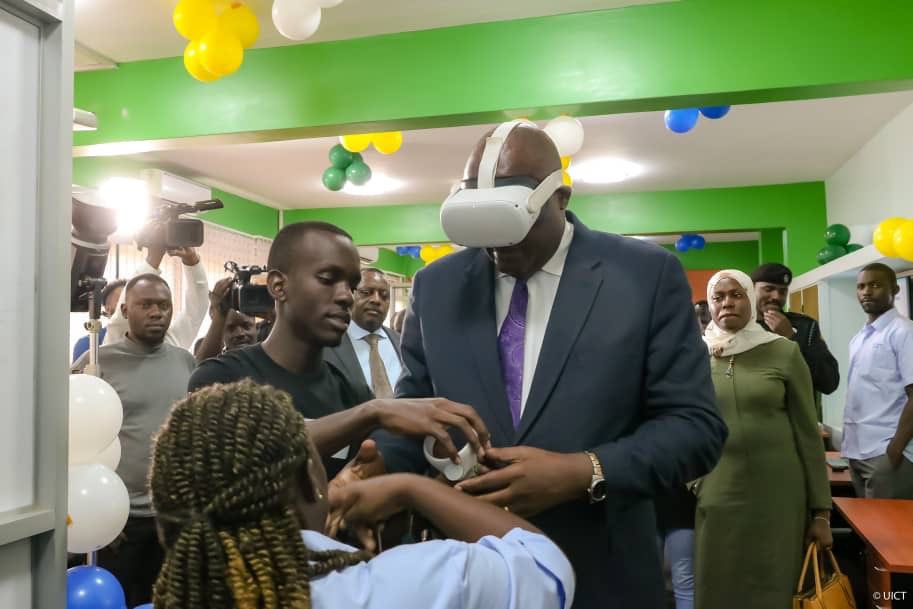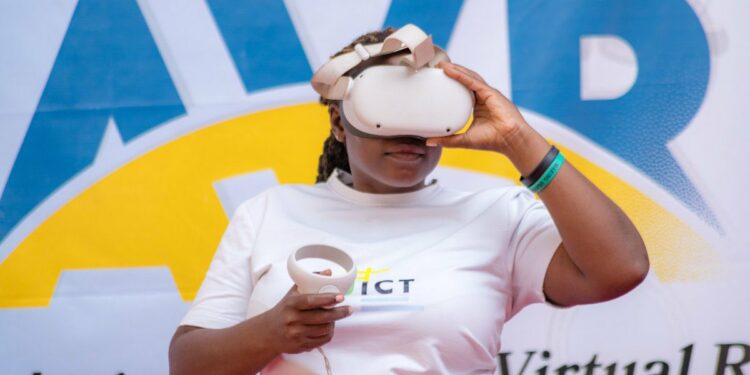In a groundbreaking move to modernize education and equip students with future-ready skills, the Uganda Institute of Information and Communications Technology (UICT) has officially launched its Augmented and Virtual Reality (AVR) laboratory.
The new facility, which accommodates 20 users, is outfitted with the latest audio-visual technologies, including VR headsets, AR glasses, high-resolution smart screens, and high-performance graphics processing computers.
This state-of-the-art lab is set to revolutionize how subjects, particularly in science, technology, engineering, and mathematics (STEM), are taught at UICT. Designed to provide immersive learning experiences, the lab offers interactive simulations, virtual laboratories, and 3D/360 modeling, creating opportunities for students and faculty to engage deeply in hands-on experimentation and research.
Edison Nkurunungi, the AVR Project Manager at UICT, highlighted the motivation behind launching the AVR lab. “The decision to incorporate AVR technology in teaching and learning was driven by a need to modernize our methods, enhance student engagement, and equip learners with skills that align with the demands of the digital age,” he explained. Since its inception in January 2024, the AVR project has already yielded significant improvements in student performance in STEM subjects, according to Nkurunungi.
“Specific success stories include a marked increase in practical skills among engineering students and positive feedback from participants in virtual labs. These experiences have demonstrated an enhanced conceptual understanding, which we are eager to expand,” Nkurunungi shared.
The lab’s immersive environment offers a range of benefits over traditional methods, including increased engagement through immersive experiences, improved retention of complex concepts, and greater accessibility for remote and diverse learning styles. “Students can now conduct experiments and explore concepts in a risk-free virtual setting, allowing for experiential learning and creative problem-solving,” Nkurunungi added.

Looking ahead, UICT has ambitious plans for the AVR lab. As a government trustee, the institute aims to scale up AVR technology by expanding the facility, integrating more courses into the curriculum, and developing partnerships with leading tech companies to support resource acquisition and training.
“Sustainability efforts will focus on continuous professional development for educators, securing funding opportunities, and nurturing a culture of innovation in teaching practices,” Nkurunungi emphasized.
Currently, AR and VR applications are primarily associated with the entertainment industry, but UICT’s AVR lab demonstrates the potential of this technology to transform educational practices. The lab’s establishment underscores the institute’s commitment to remaining at the forefront of educational innovation and providing students with practical skills in emerging fields.
Do you have a story in your community or an opinion to share with us: Email us at editorial@watchdoguganda.com










